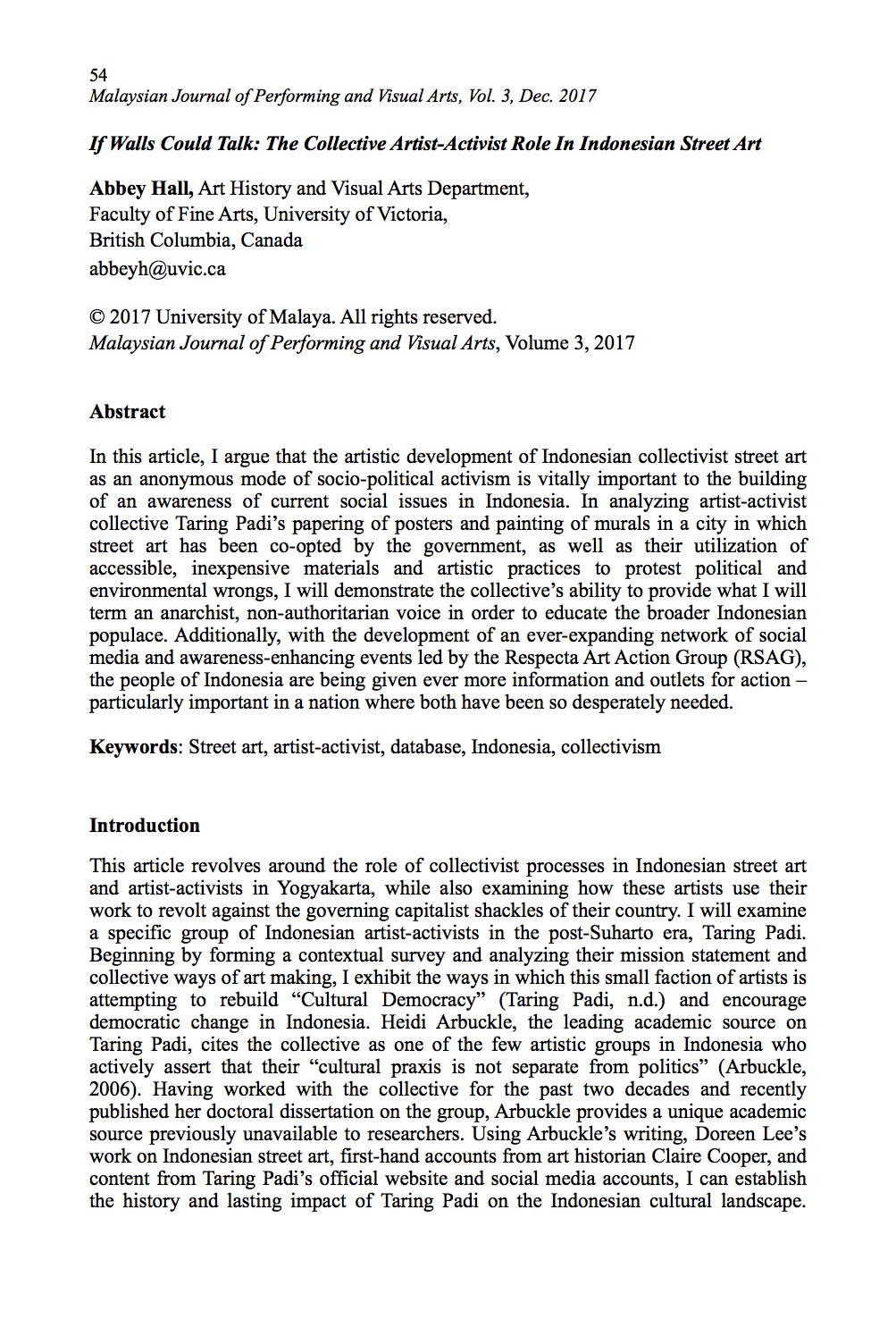If Walls Could Talk: The Collective Artist-Activist Role In Indonesian Street Art
DOI:
https://doi.org/10.22452/MJPVA.vol3no1.3Keywords:
Street art, artist-activist, database, Indonesia, collectivismAbstract
In this article, I argue that the artistic development of Indonesian collectivist street art as an anonymous mode of socio-political activism is vitally important to the building of an awareness of current social issues in Indonesia. In analyzing artist-activist collective Taring Padi’s papering of posters and painting of murals in a city in which street art has been co-opted by the government, as well as their utilization of accessible, inexpensive materials and artistic practices to protest political and environmental wrongs, I will demonstrate the collective’s ability to provide what I will term an anarchist, non-authoritarian voice in order to educate the broader Indonesian populace. Additionally, with the development of an ever-expanding network of social media and awareness-enhancing events led by the Respecta Art Action Group (RSAG), the people of Indonesia are being given ever more information and outlets for action – particularly important in a nation where both have been so desperately needed.
Downloads

Downloads
Published
Issue
Section
License


